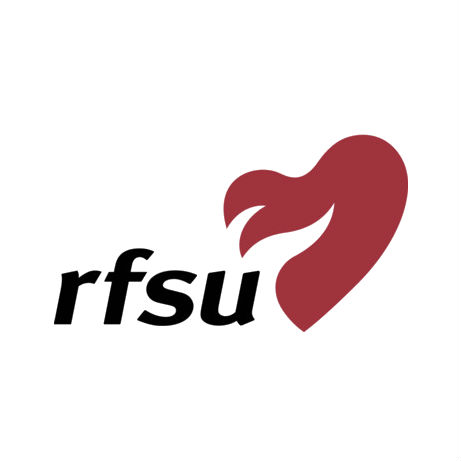

| 31 March 2016
Riksförbundet för Sexuell Upplysning - Sweden
Riksförbundet För Sexuell Upplysning (RFSU) has 17 local branches, 19 member organizations, 1 clinic and 1 'open house' youth clinic. RFSU works extensively in education, campaigning, advocacy, research, training, and in the international sexual and reproductive health and rights (SRHR) arena. The organization has been especially active in the field of counselling for people with learning difficulties, visual impairment and disability, and it runs courses for volunteers working with these groups. RFSU runs seminars for the general public on the pursuit of pleasure, gender roles and male and female language, and clinics for young men, who are generally thought to be overlooked when it comes to talking about their sexuality. These clinics are run by male staff and registered nurses. RFSU conducts outreach activities at summer seaside resorts, music festivals and other youth events. This work is carried out by trained peer educators and cover sexually transmitted infections (STIs) including HIV and AIDS, and other SRHR issues. The organization produces a quarterly bulletin which is widely read, especially by the media, and a periodical entitled `Reports on Sexuality and Reproduction'. RFSU's international activities include joint projects with the Swedish International Development Cooperation Agency (SIDA) in Tanzania andZambia, focused on the sexual and reproductive health (SRH) of young people. These projects aim to increase knowledge, to promote openness and acceptance of young peoples’ sexual activity, and to improve access to contraceptive services. Other international projects focus on communicating the Swedish experience of sex education, and on providing input into the development of family planning in Russia and the Baltic States. Contacts Website: http://www.rfsu.se/ Facebook: https://www.facebook.com/rfsu.se/ Twitter: https://twitter.com/RFSU

| 31 March 2016
Family Planning Association of Nepal
Established in 1959, the Family Planning Association of Nepal (FPAN) first joined IPPF in 1960 and become a full Member Association in 1969. When it was established, the idea of family planning was considered inimical to religious, cultural and social norms. With the institution of a government Maternal and Child Health Division in 1969, FPAN began to supplement and complement the national health and population programmes. Target populations include injecting drug users (IDUs), lesbian, gay, bi-sexual, trans-sexual and intersex (LGBTI) individuals, people living with HIV (PLHIV), survivors of gender-based violence (GBV) and trafficked returnees and refugees. FPAN serves these populations through an extensive network of 2,750 service points, comprising 127 static clinics, 116 mobile facilities, 184 associated clinics, 543 other agencies, and over 2,000 community-based distributors/services (CBDs/CBSs). Key areas of emphasis include adolescents' sexual and reproductive health, HIV and AIDS prevention and treatment, safe abortion, advocacy for sexual and reproductive health and rights (SRHR), the prevention of gender-based violence (GBV) and support for its victims, and the promotion of access to sexual and reproductive health (SRH) information and services to marginalized and under-served groups. With the dedicated backing of 450 full-time professional staff, 1000 community counsellors, 4000 peer educators and 11,000 grassroots volunteers, FPAN has the capacity to mobilize on a large scale, and with the support of over 20 governmental departments, non-governmental organizations (NGOs) and foundations, it has a secure funding base to maintain and expand its comprehensive programme of activities. Contacts Website: www.fpan.org







